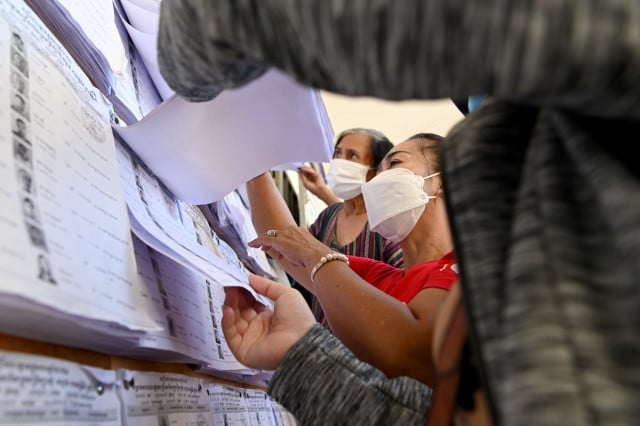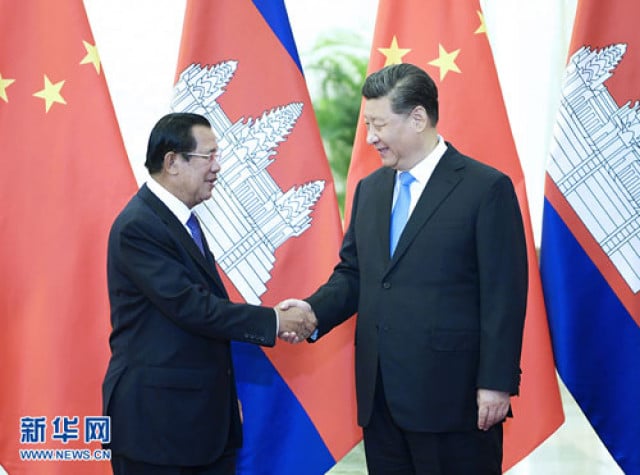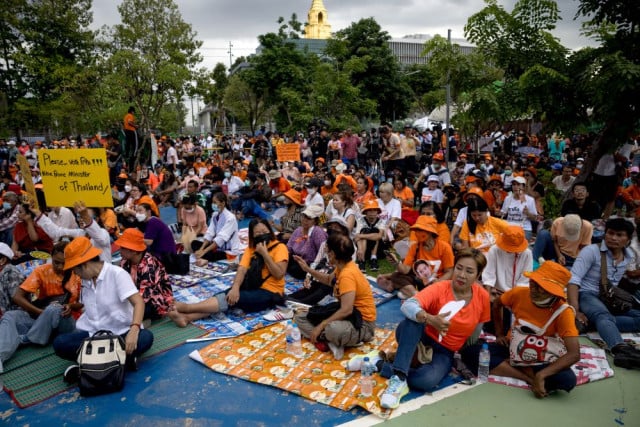Election Law Changes Make us Worse Off: Watchdog

- By Alan Kirk
- September 27, 2022 4:25 PM
PHNOM PENH – Amendments to election laws for commune ballots since 2015 have had more negatives than positives, a report by monitoring group COMFREL says.
Positive changes include reform of the voter registration system and the preparation of new voter lists and the administration of the installation of political party logos in public.
Others improvements were the prohibition of military officials, police, civil servants, local authorities, and court officials from taking part in political activities during working hours or duty time during the election campaign period as well as the acceptance and recognition of election observers and political party election observing agents.
However, the amended laws restricted rights and freedom or narrowed the space for civil society organizations’ participation in the election campaign season and confined their freedom of expression.
Other negative points were the shortened period for a registered political party’s election process as well as the maintaining of loopholes enabling civil servants, armed forces, military personnel and court officials to participate in election campaigning outside working hours or by submitting a leave form during the election campaign period.
The report says in its report on the 2022 commune council elections, "There are two unprecedented changes, which have been viewed as severely negative."
The first was that the mandate of elected representatives is not guaranteed because the amended Election Law contains a provision that allows distribution of seats belonging to a political party dissolved by the court to other political parties, which does not reflect the will of the voters.
The second was the use of criminal lawsuits against anyone whose activities have been found not to fulfil all conditions in the Election Procedure.
COMFREL said it saw issues relating to the recruitment of sub-national electoral officers.
Recruitment of the Commune/Sangkat Election Commission (CEC) and Ballot Counting Commission went smoothly. Electoral officers were mostly teachers with experience as electoral officers. Some were ruling party activists and recruitment-related information was posted at commune offices, commune halls, hospital fences, markets or downtown areas, and in social and other media.
Nevertheless, during the recruitment process, COMFREL observed irregularities related to newly selected officers who have a close connection with each other, such as father-in-law and son-in-law working in the same office.
Candidates who had not been shortlisted for the test and interview expressed their dissatisfaction with the selection process, believing that the Selection Commission pre-arranged it. Meanwhile, most representatives of political party members indicated that they did not send any political party candidates to run for the officer post.
COMFREL believes that the voter lists are still of acceptable quality despite the right to register and the right to vote remaining a challenge.
This requires more attention from the NEC and the government as well as the National Assembly to pave the legal way for voter registration of Cambodians living abroad. This is because more than 1.2 million people did not register in 2021 or in 2022 for the General Election in 2023.
The Candlelight Party registered candidates standing for the election in 1,649 communes, preceded by the Cambodian People’s Party (CPP) registering candidates for all 1,652 communes.
In this candidate registration process, the Candlelight Party and the party that was split from the former Cambodia National Rescue Party (CNRP)
were all sued, and were in some cases requested to remove their candidates from the lists on the grounds that their candidates had not fully met the criteria on literacy, having no permanent residence or failing to fill out the application form themselves.
COMFREL also monitored the complaint process during the candidate registration phase, finding that most complaints were linked to withdrawal of candidates, candidates not knowing that their name had been registered for the election, illiterate candidates or/and some candidates having no permanent residence.
These complaints concerned the removal of candidates from the lists or party candidate lists from the communes.
Meanwhile, some complaints were filed by authorities to the court over the allegation of document forgery. For instance, there was a case in Pursat province where the provincial court detained two activists of the Candlelight Party for a criminal charge of “falsification of public document,” linking it to a case under the Criminal Code.
"COMFREL views that the charge imposed by the court is a new practice. The court did not previously implement it during the election period under NEC’s management and administration.
"Consequently, the official result of the political party candidate registration showed that the Candlelight Party registered candidates only in 1,623 out of 1,649 communes for which the party had registered."
On the election campaign, COMFREL said, "A 14-day observation of the election campaign situation showed that the campaign was conducted calmly, with no violence nor confrontation between political party processions.
"The Preliminary Summary report on the Situation of the 5th mandate’s Commune/Sangkat Councils Election Campaign had been publicly released. The report identified six irregularities."
In addition to pointing out these irregularities, COMFREL also produced its recommendations and called on electoral stakeholders to implement the six-point minimum conditions for civil society organizations proposed by the Commune/Sangkat Councils election."
COMFREL asked for a procedural review for civil servants, armed forces and court officials, who should not be granted any leave to participate in the election campaign.
In the election campaign, the CPP used the most resources. The Election Law does not mention campaign finance. COMFREL observed that the ruling party utilized budget, civil servants, and means of propaganda via media outlets such as TV, radio, and private media channels.
On polling and counting days, COMFREL in collaboration with partner organizations deployed 1,858 (759 female) observers. Irregularities included the presence of the authorities such as village members, village chiefs, commune chiefs, police and competing candidates in or near polling stations. These authorities were waiting to take note of the names of voters.
Observers found some irregularities in the count. They were not allowed to observe inside some polling stations during the count and some electoral officers did not allow observers to take photos of the counting process.















